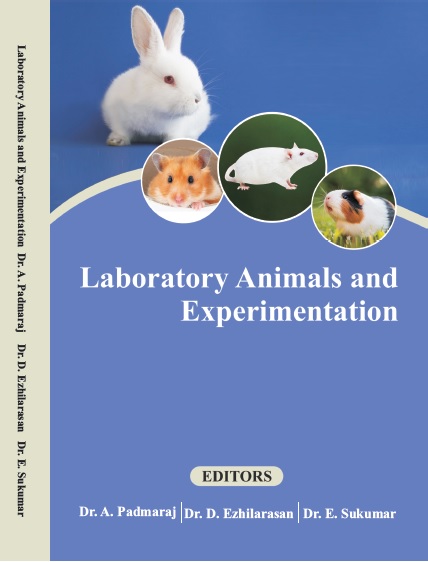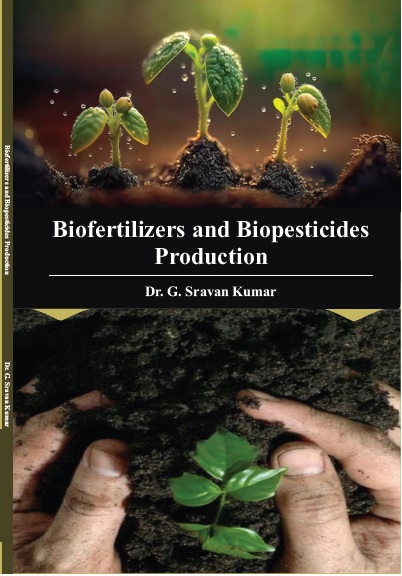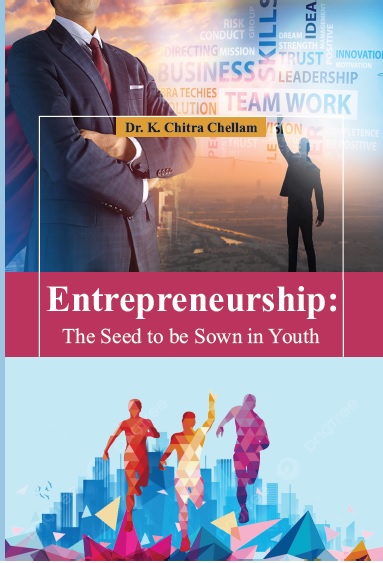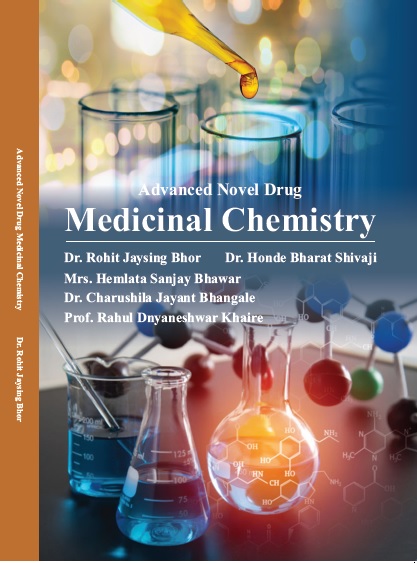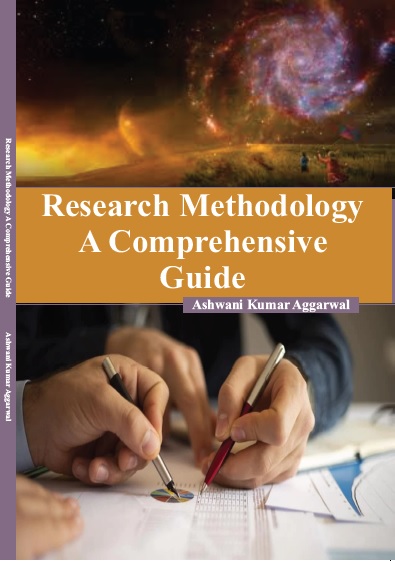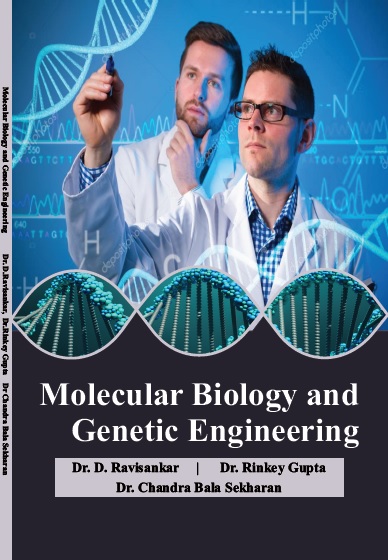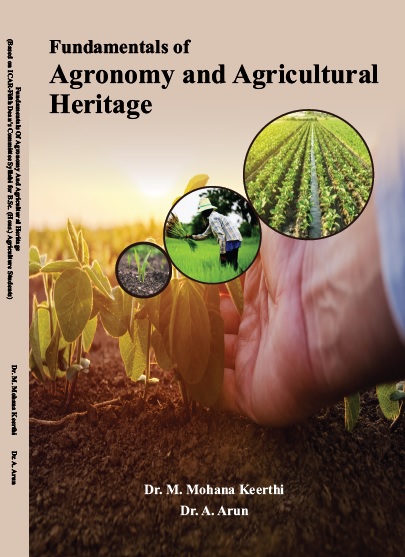LIFE SCIENCES
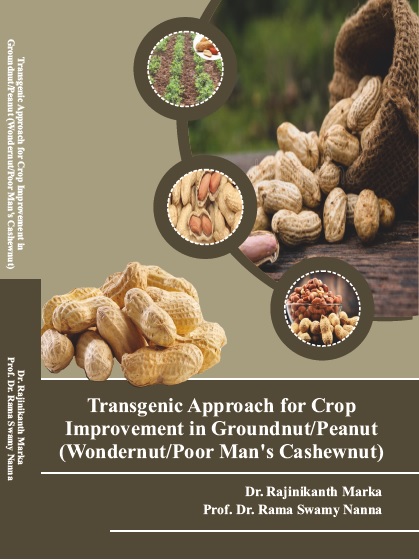
Transgenic Approach For Crop Improvement In Groundnut/peanut (wondernut/poor Man's Cashewnut)
by Dr. Rajinikanth Marka
ISBN Number : 978 - 93 - 88672 - 69 - 6
Authors Details
| Author Name | Image | About Author |
|---|---|---|
| Dr. Rajinikanth Marka |  |
Dr. Rajinikanth Marka was born on 19 June, 1985. He got B.Sc (BtBC) degree from Chaitanya
Degree & PG College, Kakatiya University, 2007 and M.Sc
(Biotechnology) University College, Kakatiya University (2007-2009).
He was awarded Ph.D in Biotechnology in 2017 under the guidance of
Prof. N. Rama Swamy from Kakatiya University. He has 7 years of
teaching and 5 years of research experience. Presently he is working as
Assistant Professor (PT), Department of Biotechnology, Kakatiya
University, Warangal. His research interest is focused on development of
transgenic fungal resistance in groundnut. He is trained in in vitro
regeneration and genetic transformation techniques like Agrobacterium mediated genetic
transformation, PCR techniques and blotting techniques. He has published 20 research articles in
various reputed National and International journals. |
| Prof. Rama Swamy Nanna |  |
Prof. Rama Swamy Nanna was born on 19 February, 1956. He got B.Sc degree from Osmania
University, 1976 and completed M.Sc (Botany) from Kakatiya
University (1976-1978). He was awarded Ph.D. degree in 1983 for the
research work on “Heteromorphic Incompatibility in distylous Turnera
subulata”. In 1987 he joined the Department of Botany as Lecturer and
became a Professor of Biotechnology in 2006. He published more than
155 research articles in reputed National and International journals. He
edited and authored eighteen books for Intermediated/Degree/
Postgraduate courses as well as for competitive examinations. He
handled twelve Major Research Projects of UGC, DBT, AICTE & MoEF and the Netherlands
Biotechnology project and collaborated with International labs. He visited Netherlands, USA, Brazil,
Germany, France, Luxemburg, Belgium and Srilanka on different International Fellowship programs.
He had been awarded coveted National and International Awards for his outstanding contribution in the
eld of Plant Biotechnology: Academy of Plant Sciences India Award-2005, Andhra Pradesh Scientist
Award-2007, International Scientist Award-2008, APSI Excellency Award-2009, The Meritorious
State Best Teacher Award-2010, Pioneers in Genomics Education class of 2010 award, Siksha Rathan
Puraskar Award-2010, Talented Biotechnologist Award-2011 (Sri Lanka), Fellow of the Linnean
Society of London in the year 2011, Bharath Jyothi Award – 2012, Talented Scientist Award – 2012
(USA), Indo-Nepal Gold Star Award-2013, Global Achievers Award-2013, Asia pacic Achievers
award-2014, National Education Achievement award-2014, Excellency in Research Award- 2014, Out
Standing Faculty Award-2015, Prof. P. Maheswari Medal Award-2017. Under his supervision 24
research scholars were awarded Ph.D degree and most of them were appointed as Assistant
Professor(s)/Scientists in different universities and Institutes. He is the member of 26 professional and
academic bodies. He had been appointed as DBT-VRP at NEHU, Shillong, by Department of
Biotechnology, New Delhi, Govt. of India and also Biotechnology Expert, Spectrum Planning India
Ltd to Assess the Schemes Funded by DBT, Govt. of India. |
Book Description
Peanut (Arachis hypogaea L.) is economically important not only for vegetable oil but also as a source of proteins, minerals and vitamins. It is widely grown in the semi-arid tropics and plays a role in the world agricultural economy. In India groundnut is produced in Rabi (25%) and Khariff (75%) both having two-crop cycle harvested in March and October respectively. Rust (caused by Puccinia arachidis) and late leaf spot (LLS) (caused by Cercosporidium personatum) are two major foliar fungal diseases of groundnut and can cause yield loss upto 70%. Use of fungicide is costly approach and it is not envirnment-friendly also, therefore transgenic new cultivars with genetic resistance is sustainable, environment-friendly and cost effective approach. Cultivated groundnut (Arachis hypogaea L.) is considered as one of the primary oilseed crops and a major fodder for cattle industry in most of the developing countries, owing to its rich source of protein. It is due to its geocarpic nature of growth that the overall yield performance of groundnut is hindered by several biotic and abiotic stress factors. Multidimensional attempts were undertaken to combat these factors by developing superior groundnut varieties, modied with integral mechanism of tolerance/resistance; however this approach proved to be futile, owing to inferior pod and kernel quality. As a superior alternative, biotechnological intervention like transformation of foreign genes, either directly (biolistic) or via Agrobacterium, signicantly aided in the development of advanced groundnut genotypes equipped with integral resistance against stresses and enhanced yield attributing traits. Several genes triggered by biotic and abiotic stresses, were detected and some of them were cloned and transformed as major parts of transgenic programmes. Leaf spot, rust, root rot, bud necrosis, rosette and crown rot are the devastating diseases of groundnut in India. It starts to attack the crop from seedling stage continues till maturity of fruits and almost damages all the plant parts (shoot, leaf, ower and fruits). Under severe attacks at early stage of crop may cause complete failure of crop especially in rain fed areas. Mostly the pest is managed through application of synthetic chemicals. They are effective, easy to apply and show rapid effects but they have begun to be withdrawn from the market in some developed countries owing to concerns about public health and environmental issues. Therefore, transgenic approach prove to be better for successful and protected disease management.








